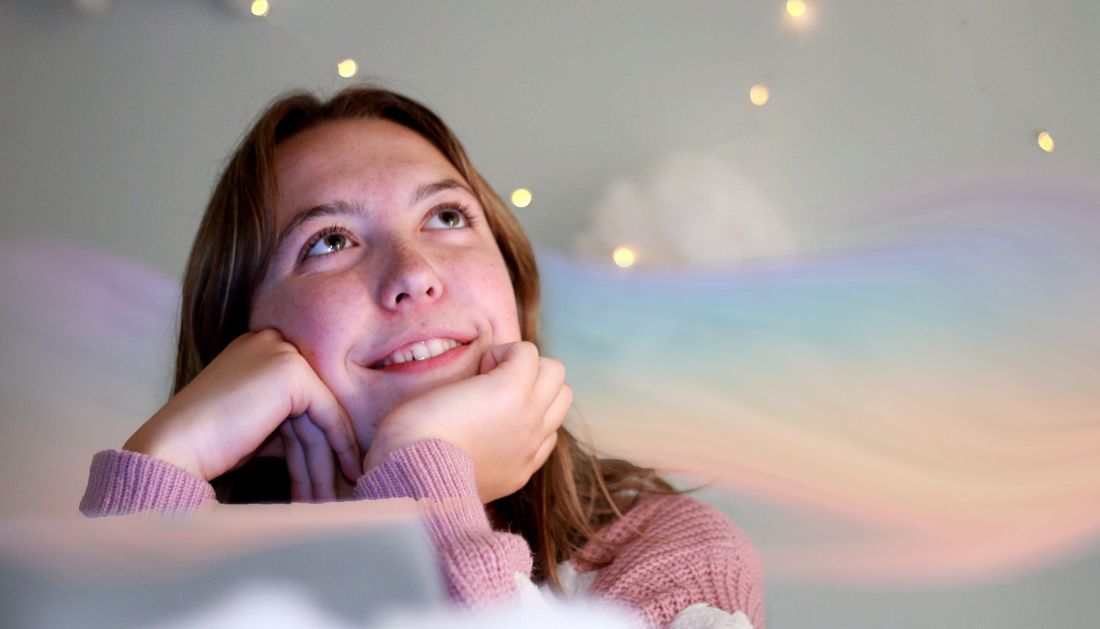

A recent study from the IMT School for Advanced Studies in Lucca has uncovered new insights into the factors that affect dream recall. Published in Communications Psychology, the research sheds light on why some people wake up with vivid memories of their dreams, while others struggle to recall anything.
The study, which involved over 200 participants ranging in age from 18 to 70, examined how various factors influence the ability to remember dreams upon waking. Participants recorded their dreams for 15 days, immediately after waking, using voice recorders. They also wore sleep monitors that tracked their sleep patterns, including sleep duration and disturbances.
One of the key findings is that people with a positive attitude toward dreams and a tendency to daydream were significantly more likely to remember their dreams. Sleep patterns also played a critical role, with those who spent longer periods in light sleep having a better chance of recalling their dreams. Interestingly, younger participants were more likely to remember their dreams, while older individuals reported more instances of “white dreams,” where they felt they had dreamed but couldn’t recall any details. Seasonal variations were also noted, with dream recall being lower during winter months compared to spring.
The study also looked at other factors such as anxiety levels, interest in dreams, and cognitive abilities like memory and attention. The results indicate that dream recall is not just a random occurrence, but rather a complex interplay of cognitive traits, sleep patterns, and personal attitudes.
Lead author, Professor Giulio Bernardi, explained that these findings deepen our understanding of the mechanisms behind dreaming and could help improve mental health research. The team also plans to compare their findings with clinical populations in future studies, which could reveal new insights into how abnormal dreaming patterns relate to mental health conditions.
In essence, this study reveals that dream recall is influenced by much more than just chance—it’s shaped by how we sleep, think, and even how we feel about our dreams.
More Information: The individual determinants of morning dream recall, Communications Psychology (2025). DOI: 10.1038/s44271-025-00191-z
more recommended stories
 Nanoplastics in Brain Tissue and Neurological Risk
Nanoplastics in Brain Tissue and Neurological RiskKey Takeaways for HCPs Nanoplastics are.
 AI Predicts Chronic GVHD Risk After Stem Cell Transplant
AI Predicts Chronic GVHD Risk After Stem Cell TransplantKey Takeaways A new AI-driven tool,.
 Red Meat Consumption Linked to Higher Diabetes Odds
Red Meat Consumption Linked to Higher Diabetes OddsKey Takeaways Higher intake of total,.
 Pediatric Crohn’s Disease Microbial Signature Identified
Pediatric Crohn’s Disease Microbial Signature IdentifiedKey Points at a Glance NYU.
 Nanovaccine Design Boosts Immune Attack on HPV Tumors
Nanovaccine Design Boosts Immune Attack on HPV TumorsKey Highlights Reconfiguring peptide orientation significantly.
 High-Fat Diets Cause Damage to Metabolic Health
High-Fat Diets Cause Damage to Metabolic HealthKey Points Takeaways High-fat and ketogenic.
 Chronic Brain Compression Triggers Neuron Death Pathways
Chronic Brain Compression Triggers Neuron Death PathwaysKey Takeaways Chronic brain compression directly.
 Acute Ischemic Stroke: New Evidence for Neuroprotection
Acute Ischemic Stroke: New Evidence for NeuroprotectionKey Highlights A Phase III clinical.
 Needle-Thin Brain Implant for Layer-Specific Brain Research
Needle-Thin Brain Implant for Layer-Specific Brain ResearchKey Takeaways Researchers have developed a.
 Statins Rarely Cause Side Effects, Large Trials Show
Statins Rarely Cause Side Effects, Large Trials ShowKey Points at a Glance Large.

Leave a Comment